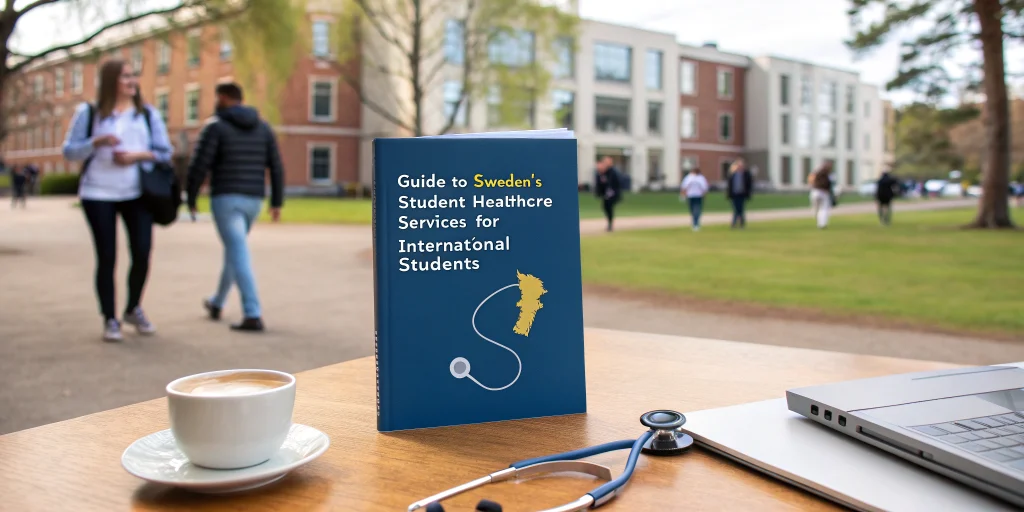A Guide to Sweden’s Student Healthcare Services: Essential Information for International Students
Insurance and Coverage
Understanding Healthcare Costs
How to Access Healthcare Services
Preparing for Healthcare
Conclusion
Take the Next Step with Study in Sweden
Understanding Sweden’s Healthcare System for International Students
Sweden boasts a well-organized, government-subsidized healthcare system designed to provide quality medical care for its residents—including international students. However, it is important to note that while healthcare services are subsidized, they are not completely free. Students typically access medical care through local healthcare centers, known as vårdcentraler, for non-emergency health issues.
Key Features of the Swedish Healthcare System:
- Government-Subsidized Care: Patients pay a nominal fee for most healthcare services.
- English-Speaking Medical Staff: Medical professionals commonly speak English, minimizing language barriers.
- Interpreter Services Available: Local healthcare centers can arrange interpreter services if needed.
- 24/7 Advice via 1177 Service: Sweden offers a round-the-clock healthcare advice phone line and website, accessible in English, to guide patients to the appropriate care.
For more information, visit Moving to Sweden – Health Insurance.
Insurance and Coverage: What International Students Need to Know
Healthcare coverage in Sweden varies depending on the length of your studies. It is important for students and education professionals to understand these distinctions to provide accurate guidance.
For Long-term Students (12 Months or More)
Students planning to stay in Sweden for over a year must register with the Swedish Population Register at the Swedish Tax Agency upon arrival. This registration grants a Swedish personal identity number (personnummer), which qualifies students for healthcare on equal terms with Swedish citizens.
Benefits of Registration:
- Equal patient fees compared to Swedish residents.
- Access to subsidized medical care nationwide.
- Ability to use local healthcare centers and hospitals seamlessly.
Note: The registration process can take several weeks. During this interim, EU/EEA students can use the European Health Insurance Card (EHIC), while other international students should rely on their university-provided student insurance.
For Short-term Students (Less than 12 Months)
Students staying for shorter periods are not eligible for registration in the Population Register and therefore do not receive a personal identity number. These students must rely on:
- University Student Insurance: Typically covers medical care, but coverage may be limited compared to the Swedish system.
- Private Health Insurance: Recommended for comprehensive coverage, especially for non-urgent or elective treatments.
It is essential that short-term students verify their insurance coverage before departure to avoid unexpected healthcare costs.
Discover detailed guidance at Healthcare When Studying in Sweden.
Understanding Healthcare Costs in Sweden
While Swedish healthcare is highly subsidized to ensure affordability, students should be prepared for certain fees when accessing medical services.
- Typical Fees:
- Doctor’s visit at a healthcare center: SEK 250–400.
- Fees vary depending on the type of service and healthcare facility.
- Emergency Care: Emergency services are available by dialing 112, with costs typically dependent on urgency and type of treatment.
Being transparent about these potential costs helps students plan financially and set realistic expectations for their healthcare experiences.
How to Access Healthcare Services as a Student in Sweden
Knowing how to navigate Sweden’s healthcare system empowers students to seek timely medical care. Below is a step-by-step guide for international students:
- Locate the Nearest Healthcare Center
Use the 1177.se website, an official resource, to find your closest healthcare facilities. - Make an Appointment
Contact the healthcare center to book an appointment. Note that wait times may occur, especially for non-urgent care and if you do not yet have a personal identity number. - Bring Relevant Documents to Your Appointment
- Registered students: Swedish personal identity number and ID.
- EU/EEA students: European Health Insurance Card (EHIC).
- Non-EU/EEA students: Student insurance documents.
- Emergency Procedures
In case of emergencies, dial 112 immediately to access ambulance, police, or fire department services.
Important: Language should not be a barrier as English is widely spoken, and interpreter services are available upon request.
Additional insights are available via Healthcare and Insurance at Linnaeus University.
Preparing for Healthcare Before You Arrive in Sweden
Advanced planning related to healthcare is critical for a smooth transition to studying in Sweden.
- Review Your Insurance Coverage
Check exactly what your university’s student insurance covers. Some policies exclude routine or non-urgent healthcare and treatments outside Sweden. - Consider Supplementary Insurance
Based on your health needs and coverage gaps, supplemental private insurance may be necessary for comprehensive protection. - Register Promptly Upon Arrival
For long-term students, swift registration with the Population Register facilitates access to Swedish healthcare benefits.
Education professionals and recruiters can support students by providing clear checklists and actionable advice to ensure they arrive well-prepared and informed.
Conclusion: Partner with Study in Sweden to Support Students’ Healthcare Needs
Healthcare planning is an essential part of the international education journey. With this comprehensive guide to Sweden’s student healthcare services, you can confidently advise students on navigating the system, insurance requirements, and cost management.
At Study in Sweden, we are committed to empowering education stakeholders with expert knowledge and digital recruitment tools that simplify international student integration—including critical healthcare information.
Take the Next Step with Study in Sweden
Explore further resources to enhance your understanding and support for international students.

